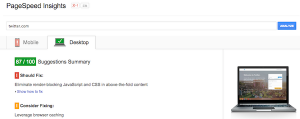
It’s 2015. Do you know where your business is?
Of course you do. You probably work there on a regular basis. But if Google doesn’t know where your business is, your local search engine optimization campaign will never get off the ground.
The Google Pigeon update that went into effect in 2014 dramatically changed the mechanics of local search. Prior to the update, internet marketers could use onsite content and offsite link building to build rankings.
Now, Google is focusing on local directory websites, including review sites like Yelp. And they don’t look kindly on typos.
Companies with inconsistent titles or typos in their addresses are finding themselves bumped down in their search rankings. Though content marketing (which 92% of marketers consider somewhat or very effective for SEO) has been considered “king” of online marketing in the past, it seems consistency is king in 2015.
A restaurant listed on one website as, say “Chinese Family Restaurant,” will rank poorly if they’re listed on other sites as “Chinese Restaurant.” Similarly, a company that calls itself “Office Supplies USA” and “Office Supplies USA, Inc.” interchangeably could take a hit in local search.
It seems like it wouldn’t make a difference, but Google is cracking down on these inconsistencies. So what can businesses do to adjust to this change?
Many people are encouraging customers to visit Yelp and other review sites to comment on their business, but this still may not deal with the root of the problem. To supplement this, companies need to keep their names and contact information consistent across all directories.
This may seem like a big task, especially for companies who already have information on several different platforms. Fortunately, tools like Yext and others can adjust all directory information at once, making it easier for companies to rank on local search.
(281)
Report Post







